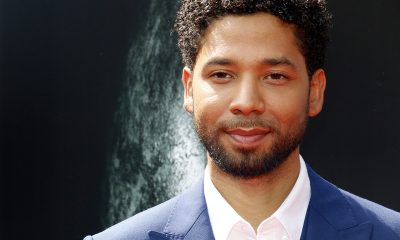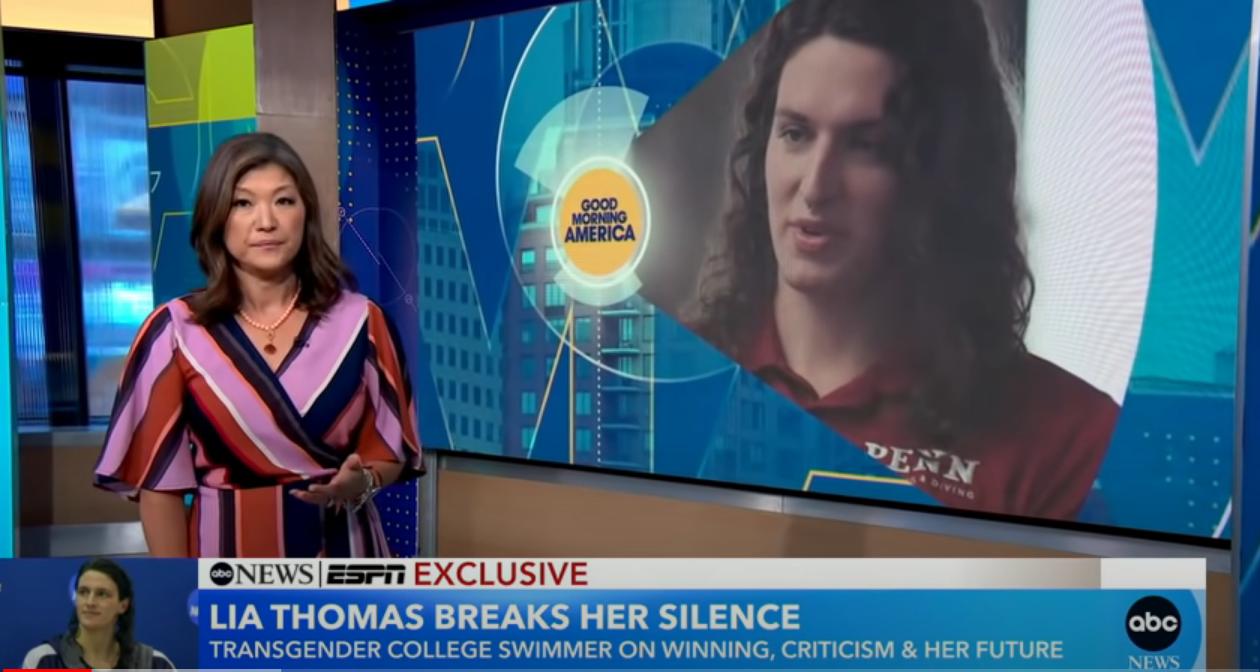Arts & Entertainment
Jussie Smollett details reported attack that left him ‘forever changed’
The ‘Empire’ star says he’s ‘pissed off’ at incident
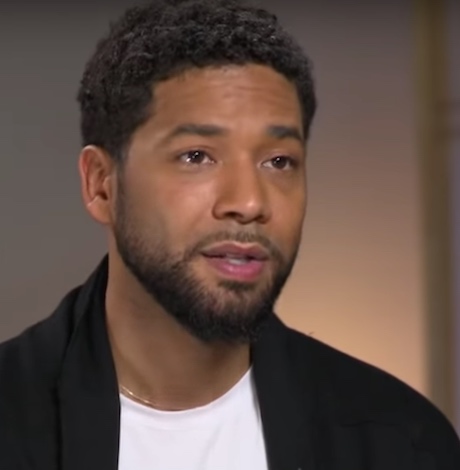
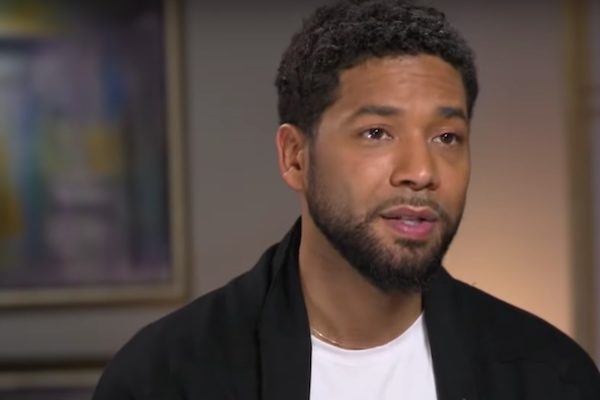
Jussie Smollett publicly detailed his alleged homophobic and racist attack for the first time in an interview with “Good Morning America” on Thursday.
The “Empire” star recalled the incident, which occurred on Jan. 29 in Chicago, to Robin Roberts
Smollett says he was picked up from the airport by his creative director Frank Gatson. After arriving at Smollett’s apartment, Smollett wanted to get food. Smollett went to a local Walgreens but the location was closed. He decided to go to a Subway across the street. As Smollett was leaving Subway, he was on the phone with his manager, who was in Australia. He says that is when he heard someone
“And, I don’t answer to Empire, my name ain’t Empire,” Smollett told Roberts. He claims that he was then called “F**got, Empire, n***r!” Smollett recalled that the attackers also yelled “MAGA country.”
“So I turned around and said ‘What the f*c*did you just say to me’ and I see the attacker masked,” Smollett said. “He said ‘This MAGA country nr’ and he punched me in the face so I punched his a** back.”
Smollett says the fight ended up near some stairs and a second person kicked him in the back. The suspects ran away and Smollett picked up his phone which had fallen. Smollett says his manager was still on the line and he told him he had been attacked.
“It felt like minutes but it probably was like 30 seconds,” Smollett continued. “I can’t tell you honestly. I noticed the rope around my neck and I started screaming.”
Chicago Police released an image from surveillance camera footage of the area which shows “potential persons of interest.”
Chicago police release surveillance images of “potential persons of interest wanted for questioning in reference to the assault & battery” of “Empire” star Jussie Smollett. https://t.co/eIoTNF3CFi pic.twitter.com/jjwGYxRKOe
— ABC News (@ABC) January 31, 2019
Smollett told Roberts he believes those are the suspects who attacked him.
“Because I was there,” Smollett says. “For me, when that was released, I was like, ‘O.K., we’re getting somewhere.’ I don’t have any doubt in my mind that that’s them. Never did.”
As for the skeptics who aren’t convinced of Smollett’s story, the actor says people have an issue with his description of the suspects.
“It feels like if I had said it was a Muslim, or a Mexican, or someone black, I feel like the doubters would have supported me much more,” Smollett says
Smollett, who grew emotional at various parts of the interview, says he is “forever changed” by the incident.
“I will never be the man that this did not happen to,” Smollett says. “I am forever changed. I don’t subscribe to the idea everything happens for a reason, but I do subscribe to the idea that we have the right and the responsibility to make something meaningful out of the things that happen to us, good and bad.”
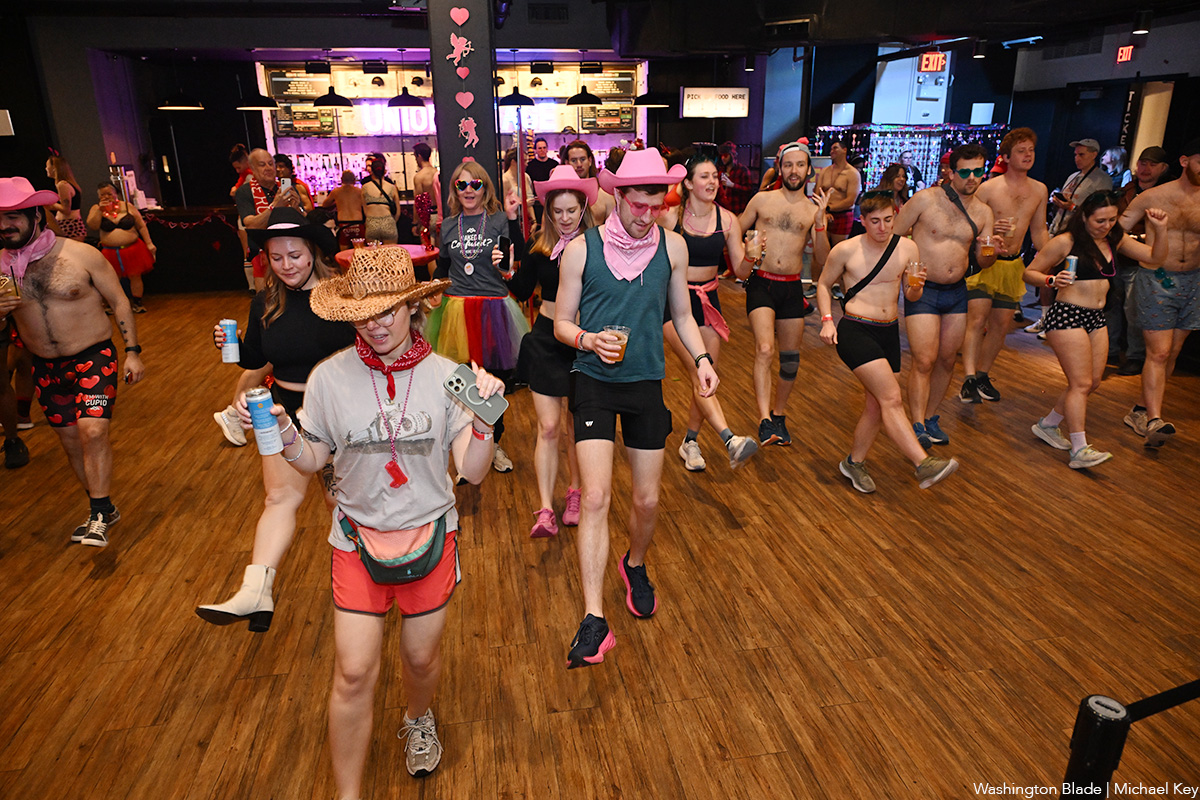
Cupid’s Undie Run, an annual fundraiser for neurofibromatosis (NF) research, was held at Union Stage and at The Wharf DC on Saturday, Feb. 21.
(Washington Blade photos by Michael Key)
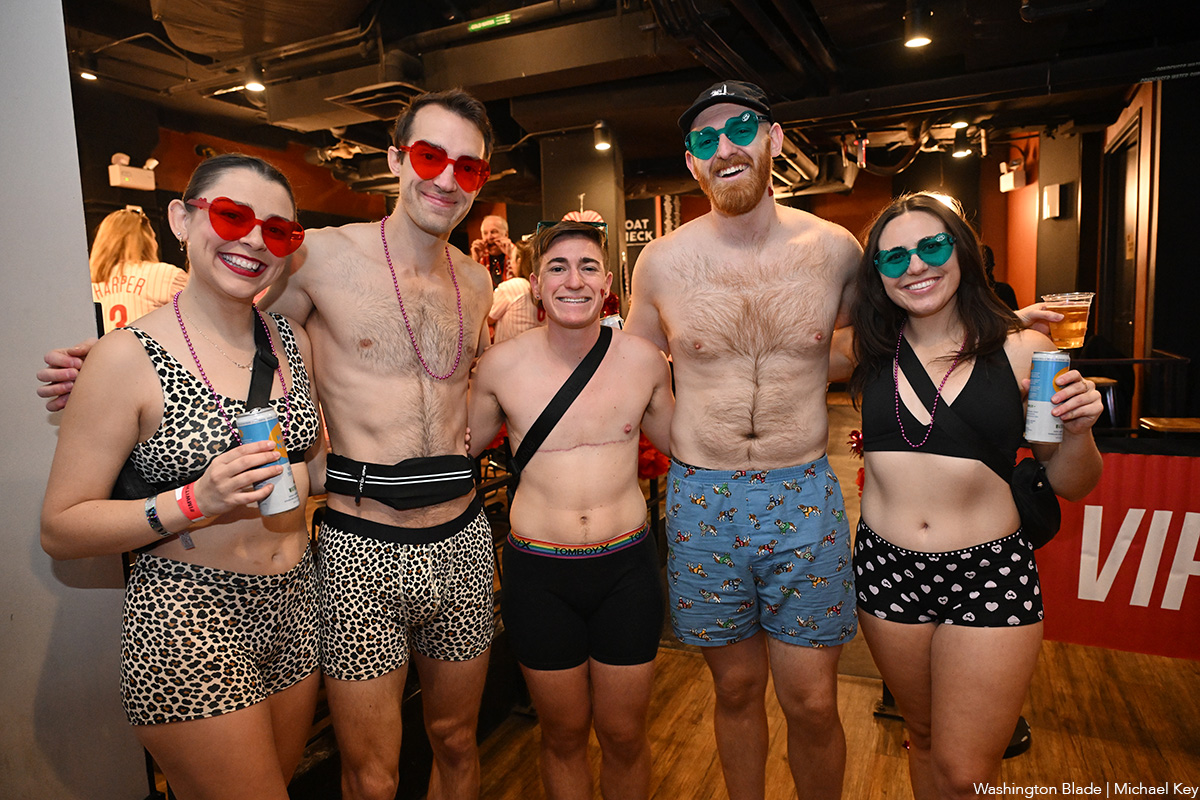
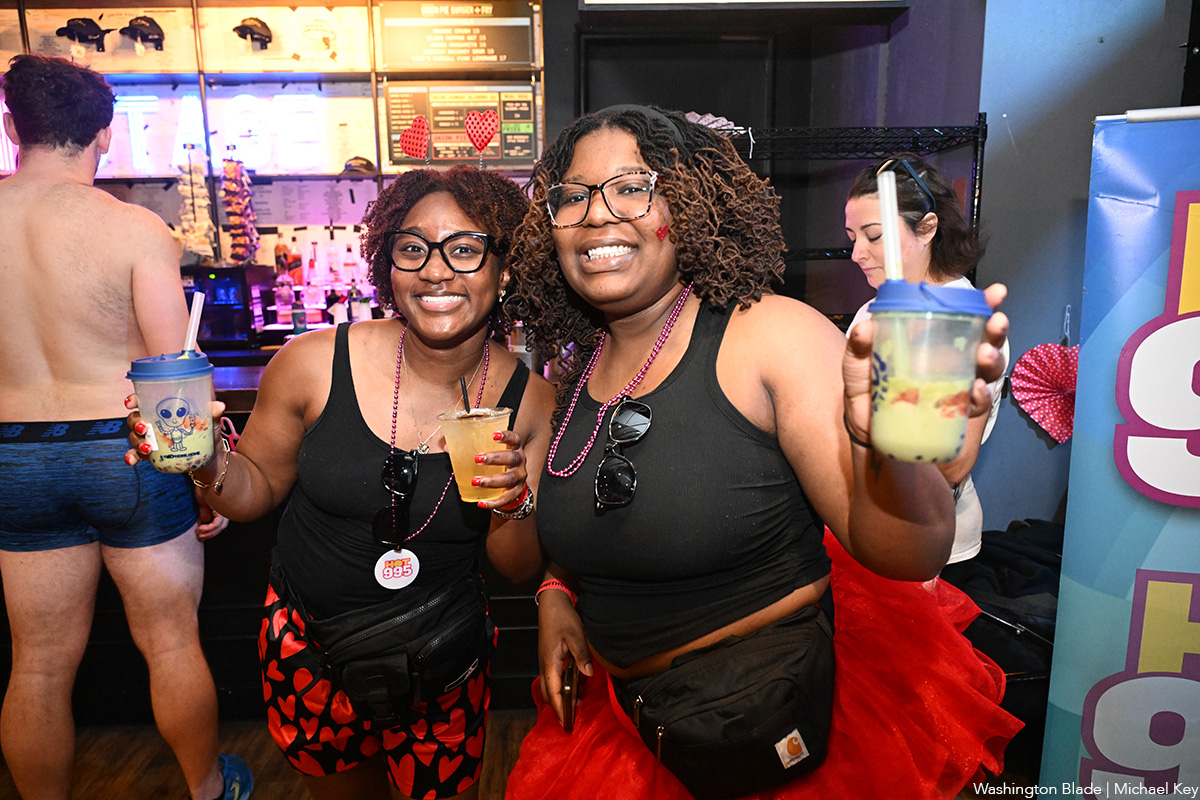
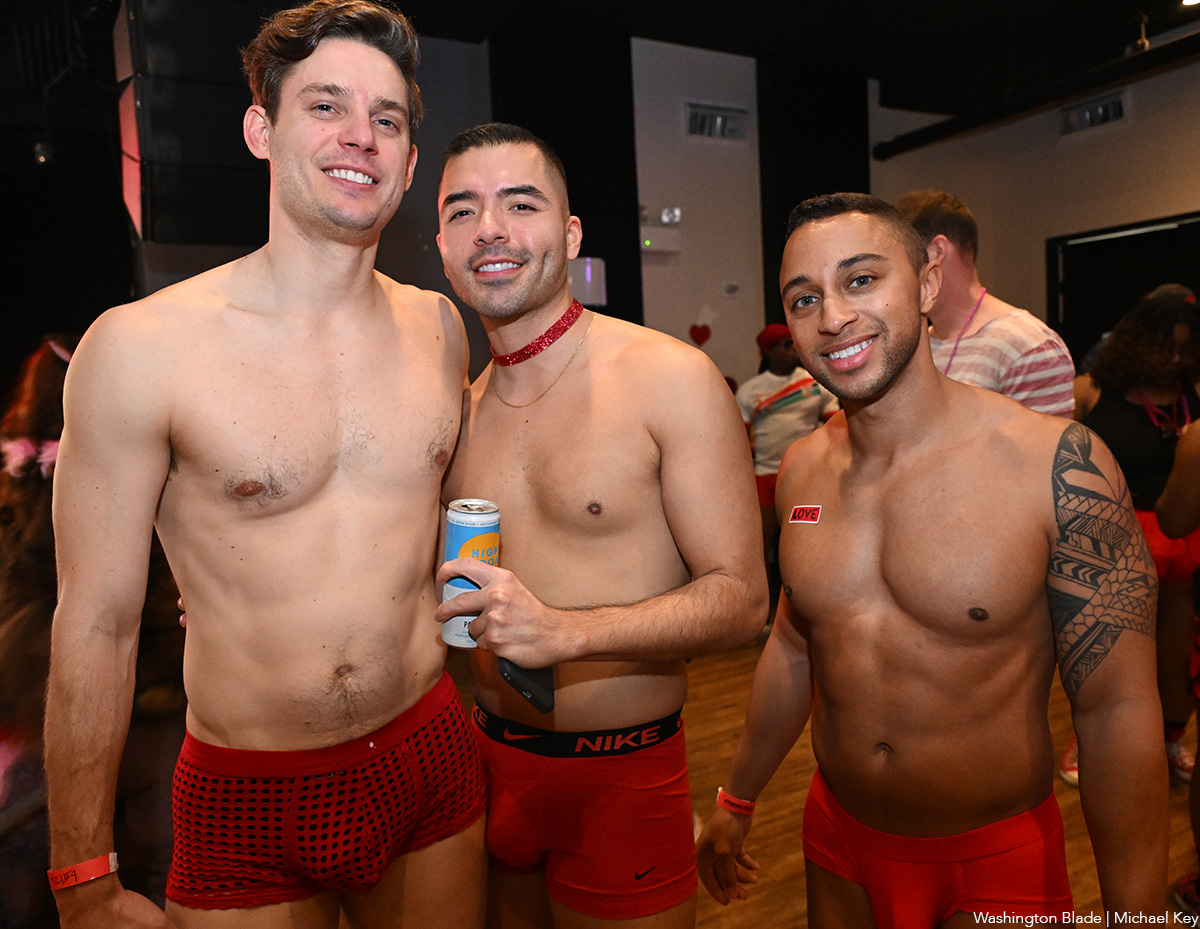
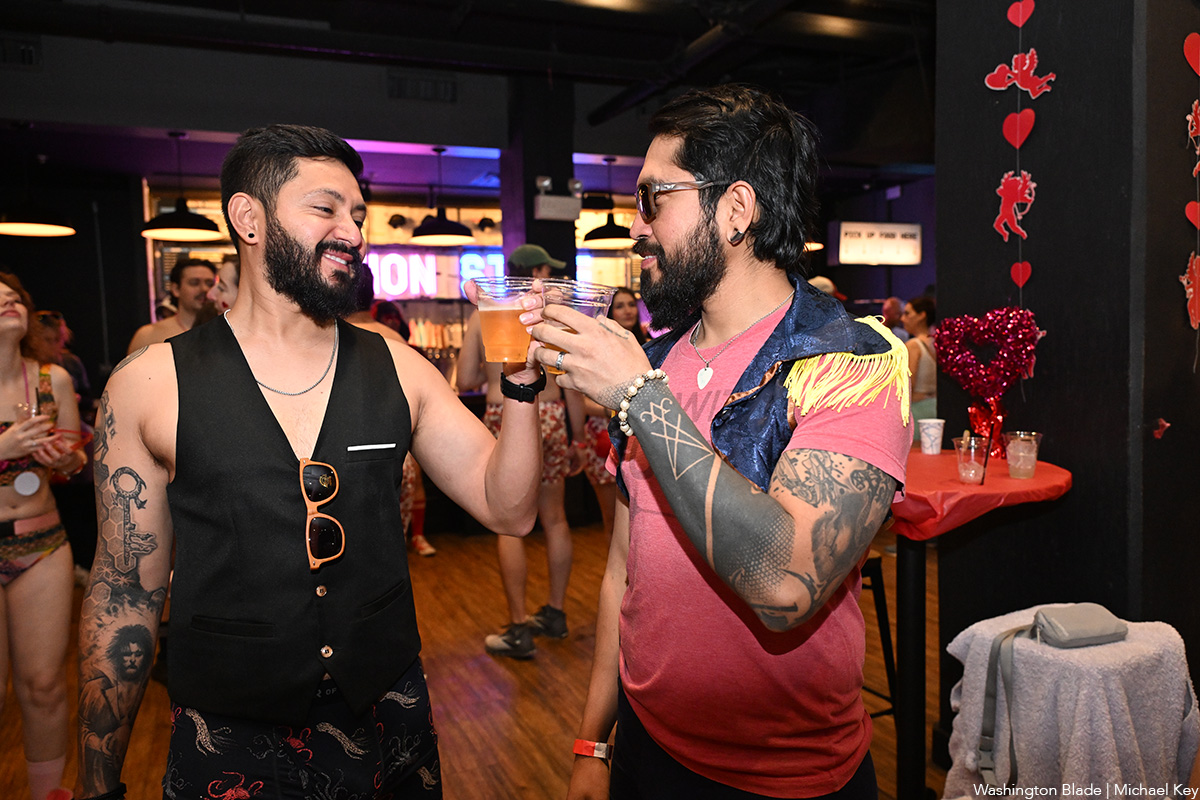
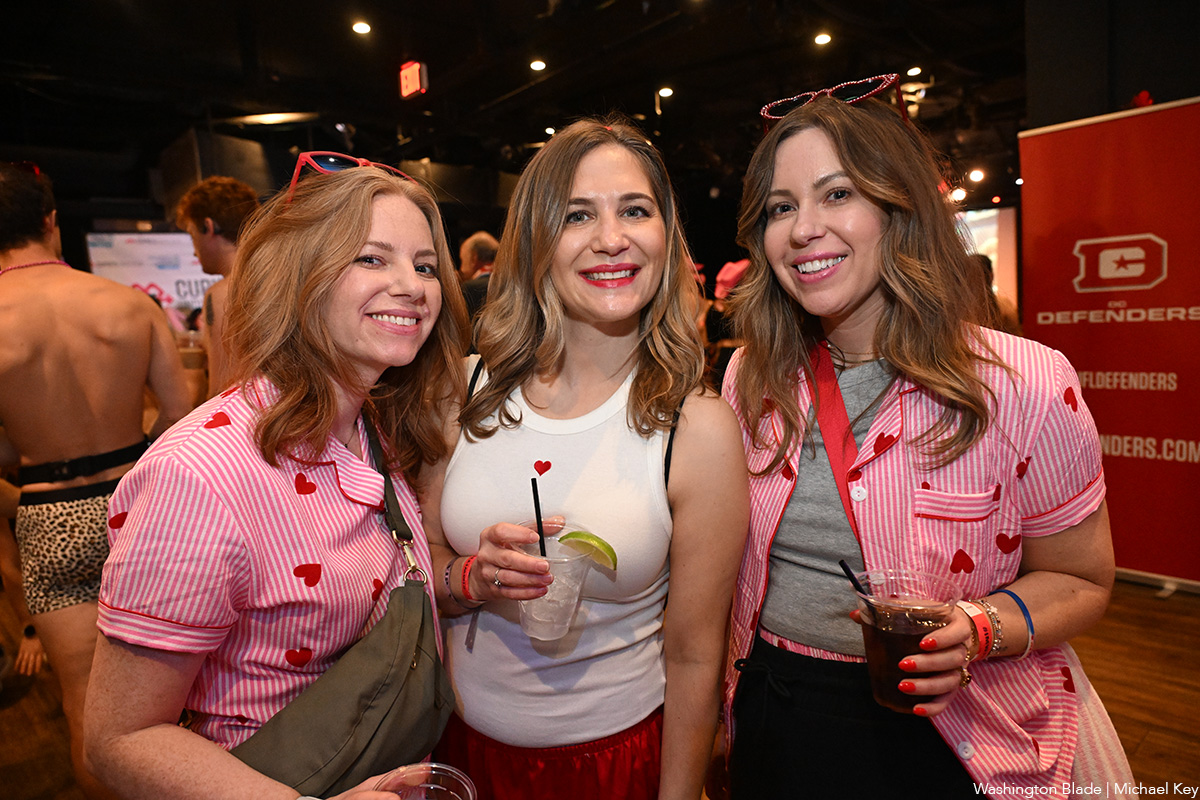
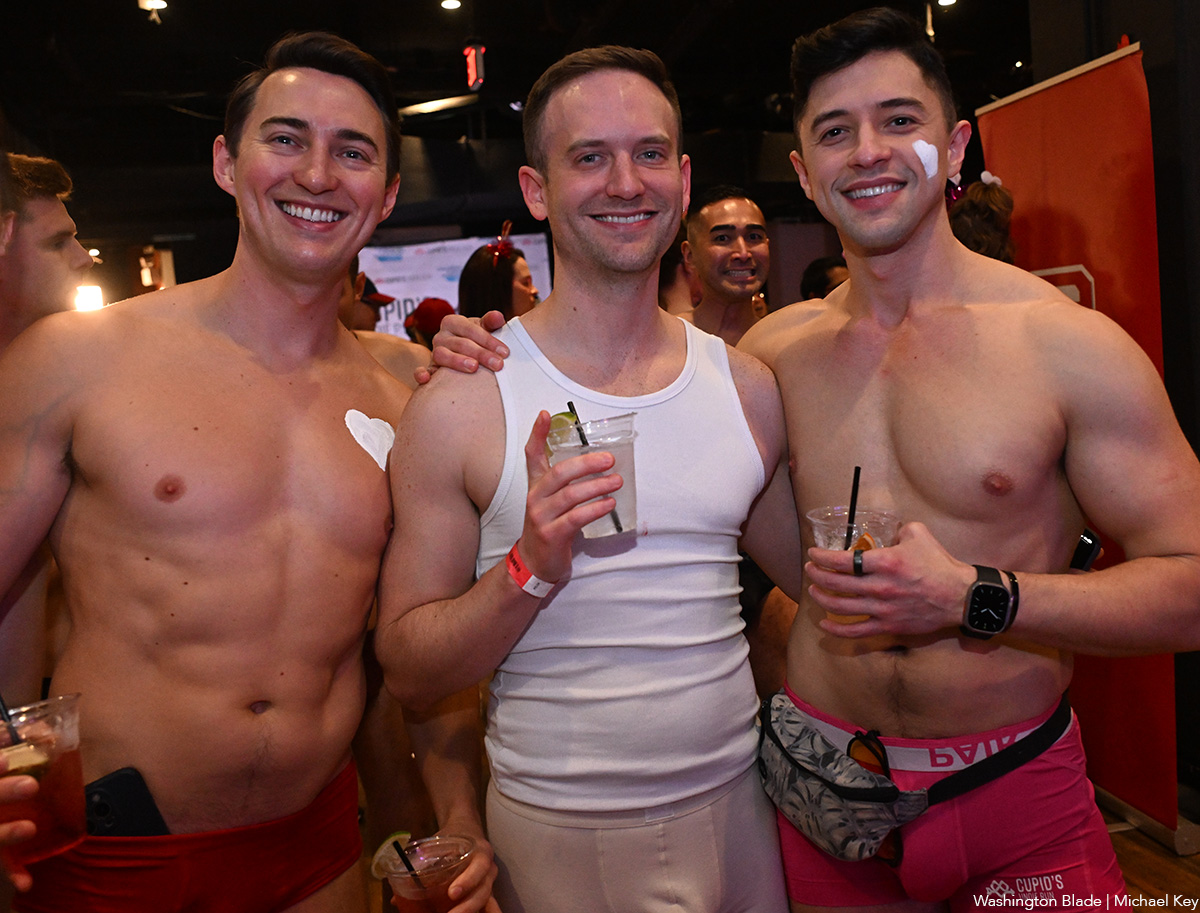
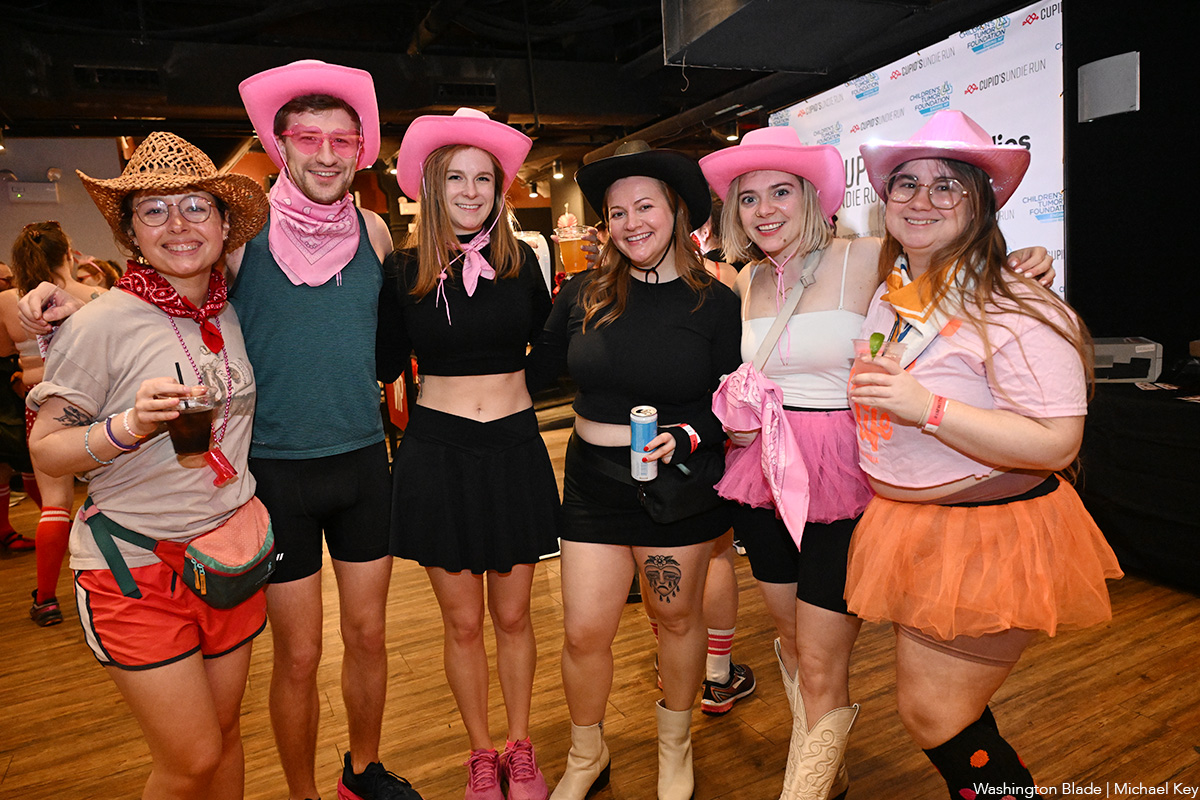
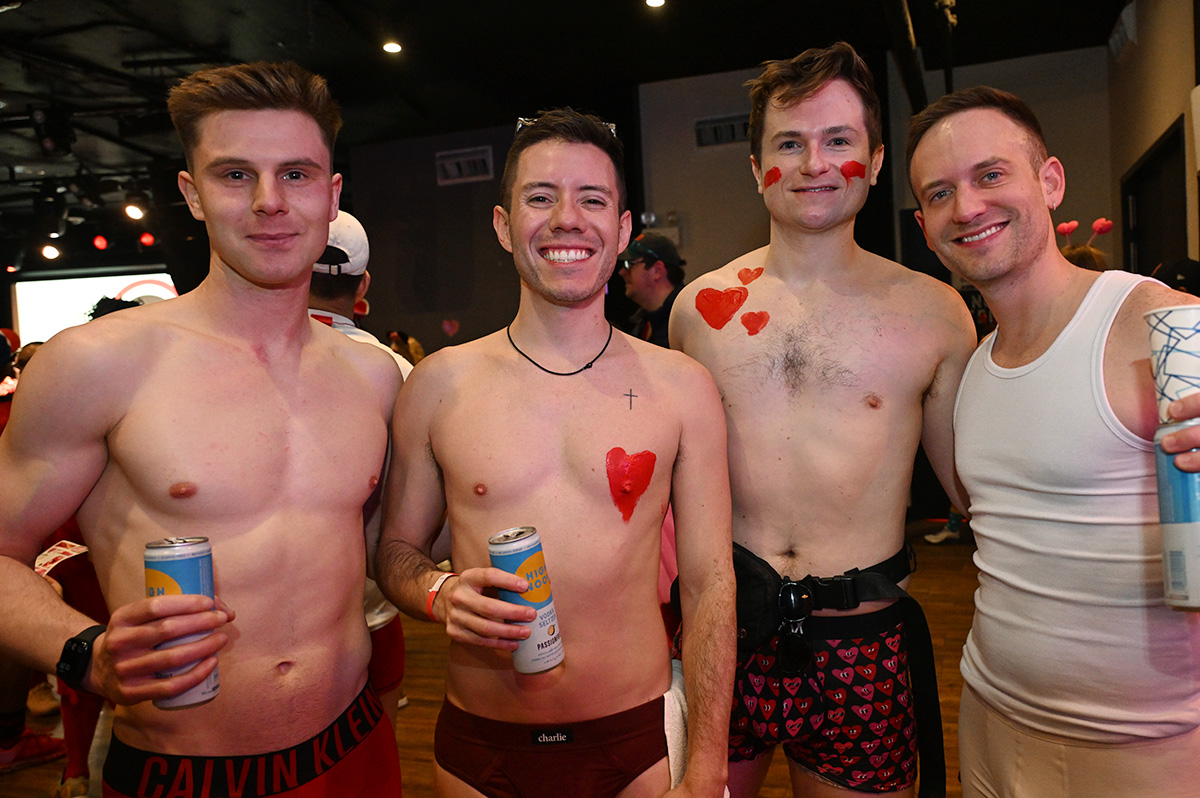
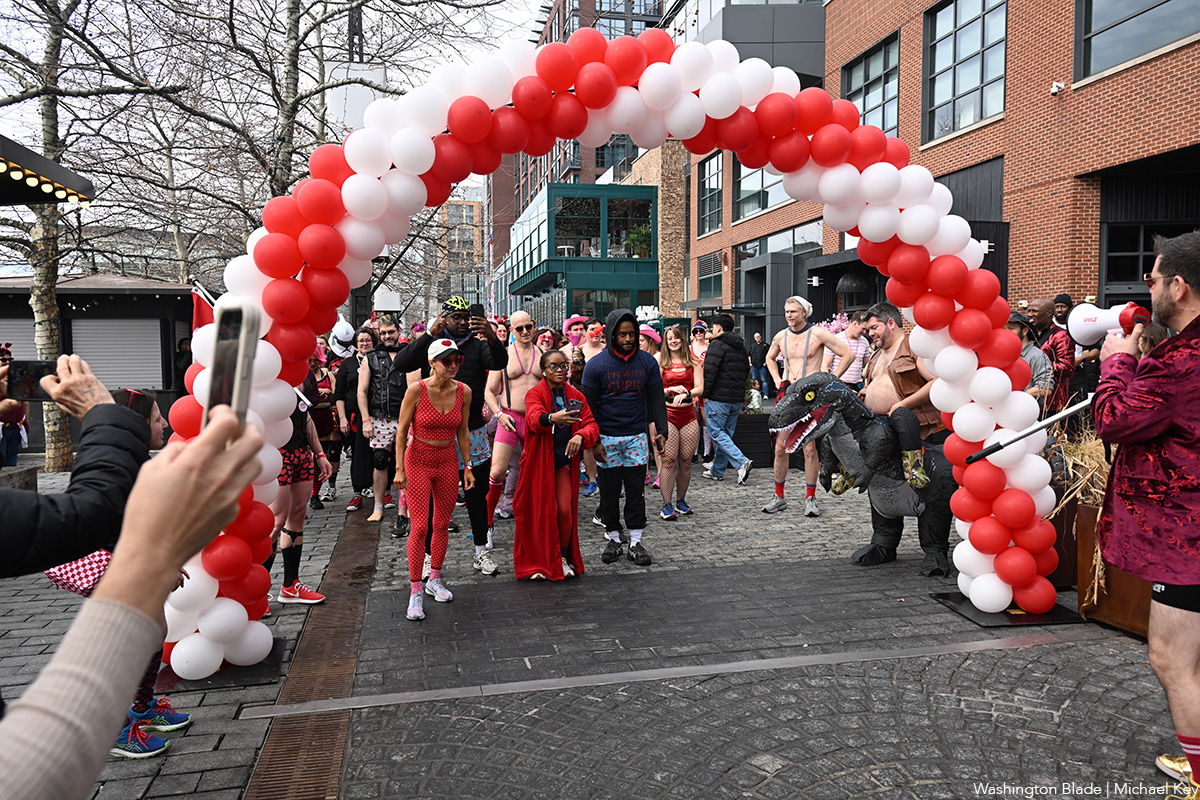
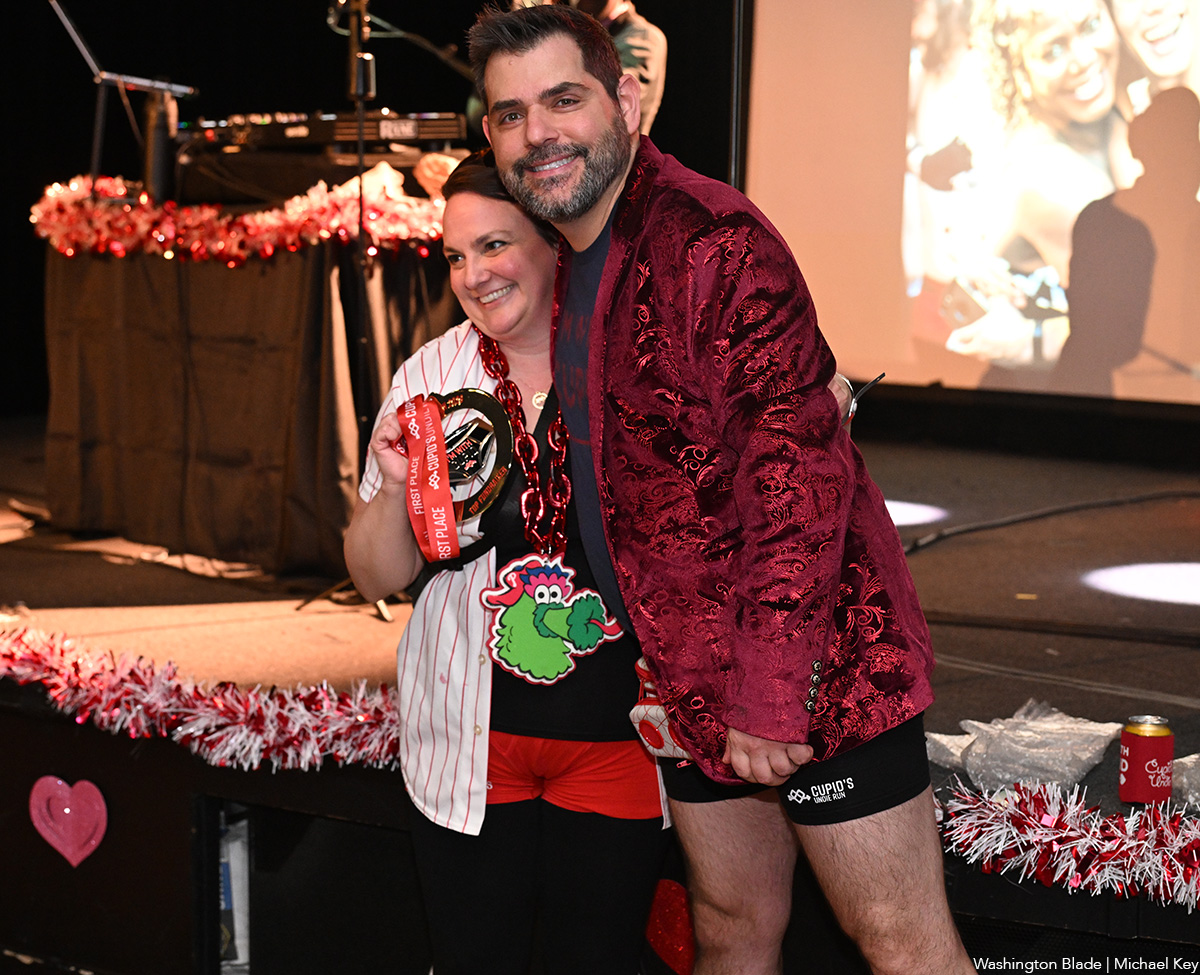
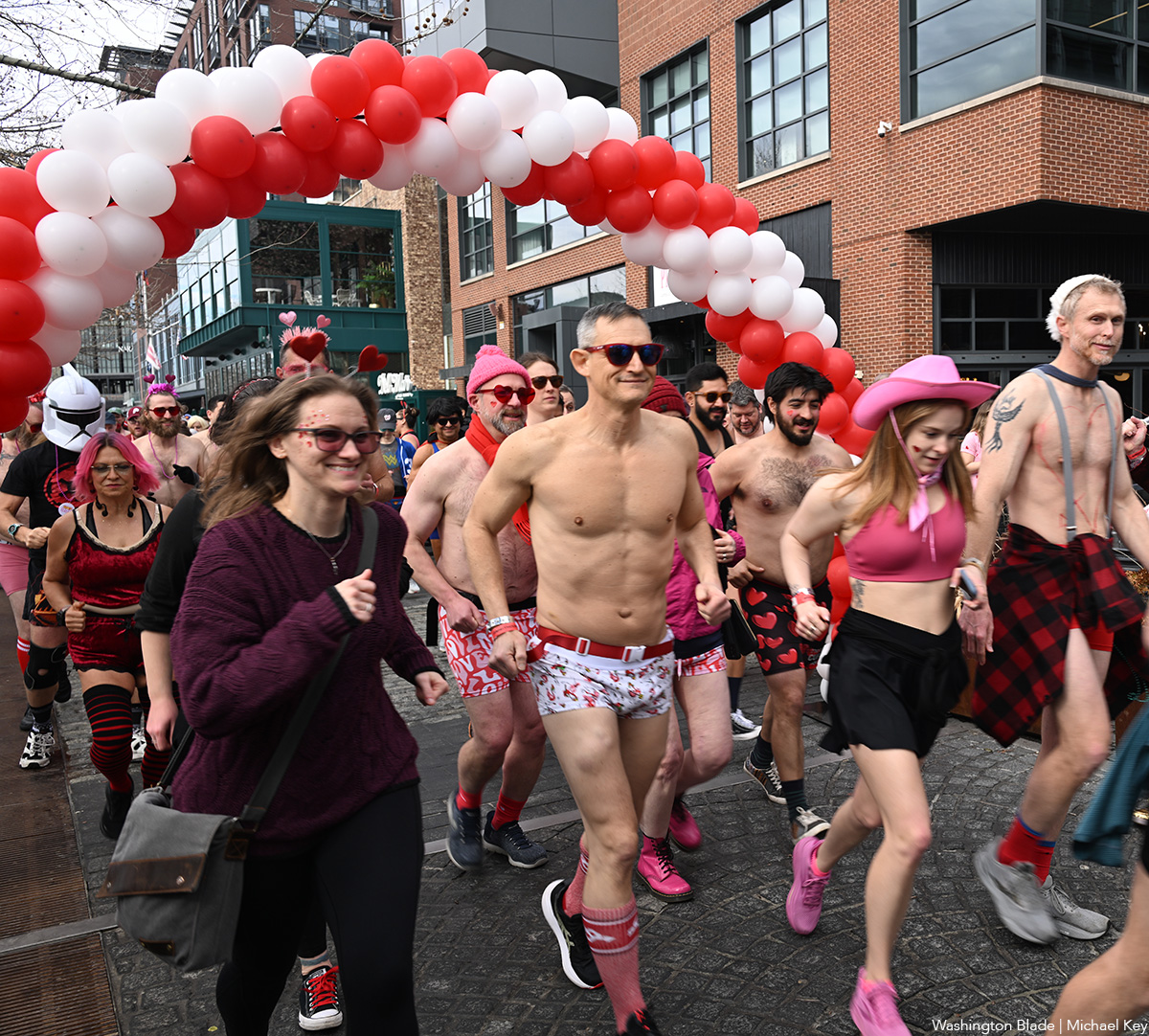
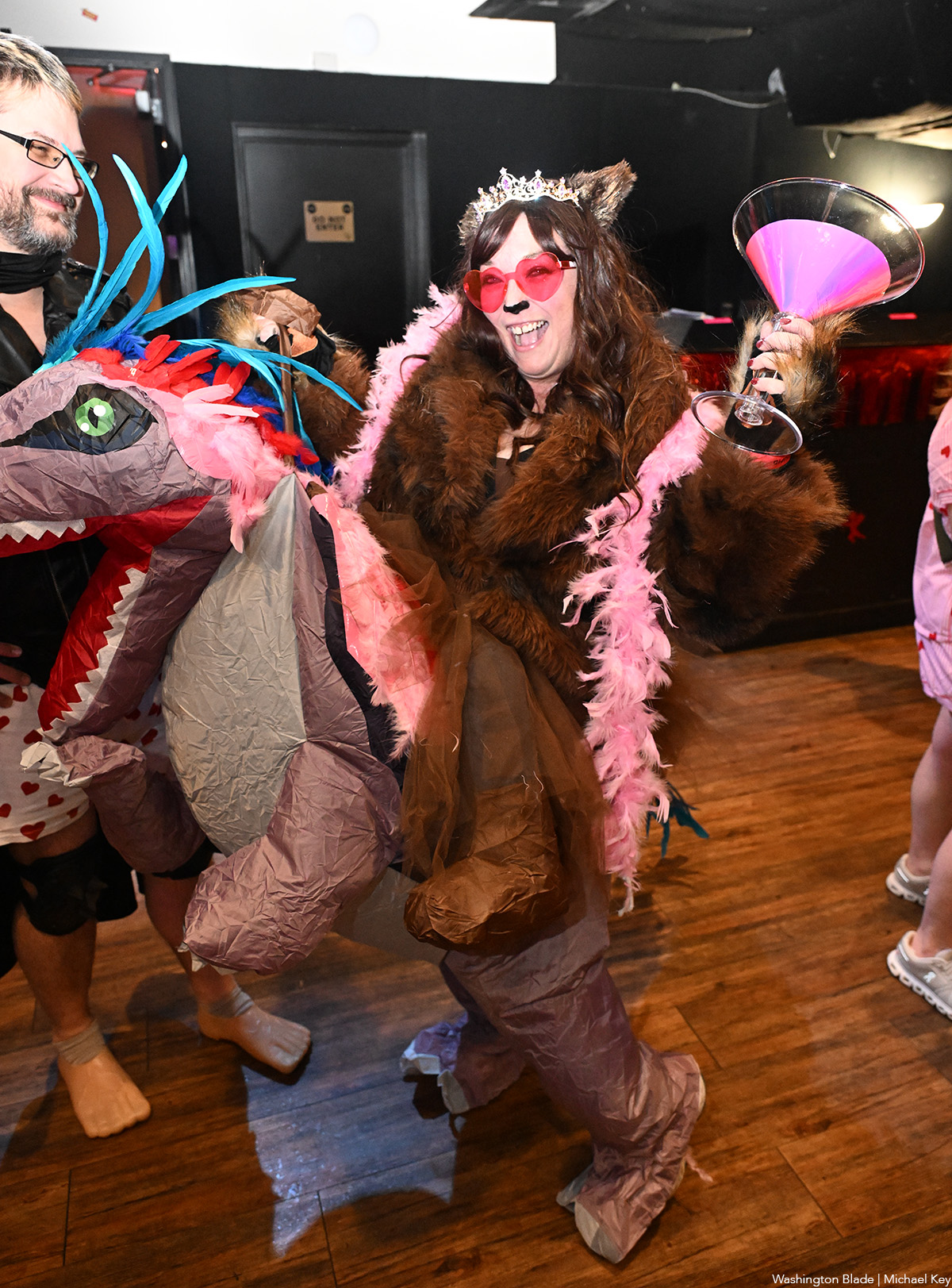
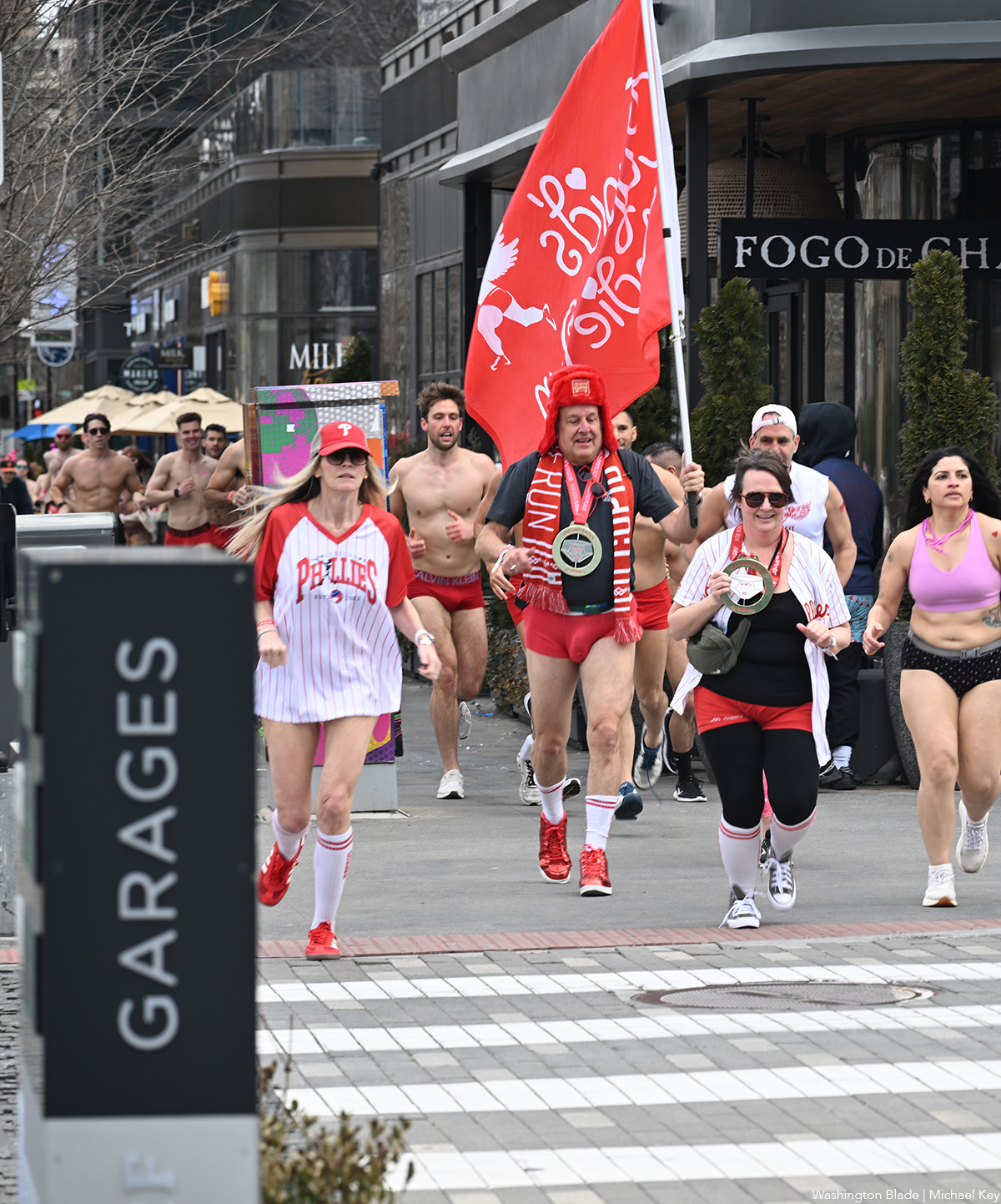
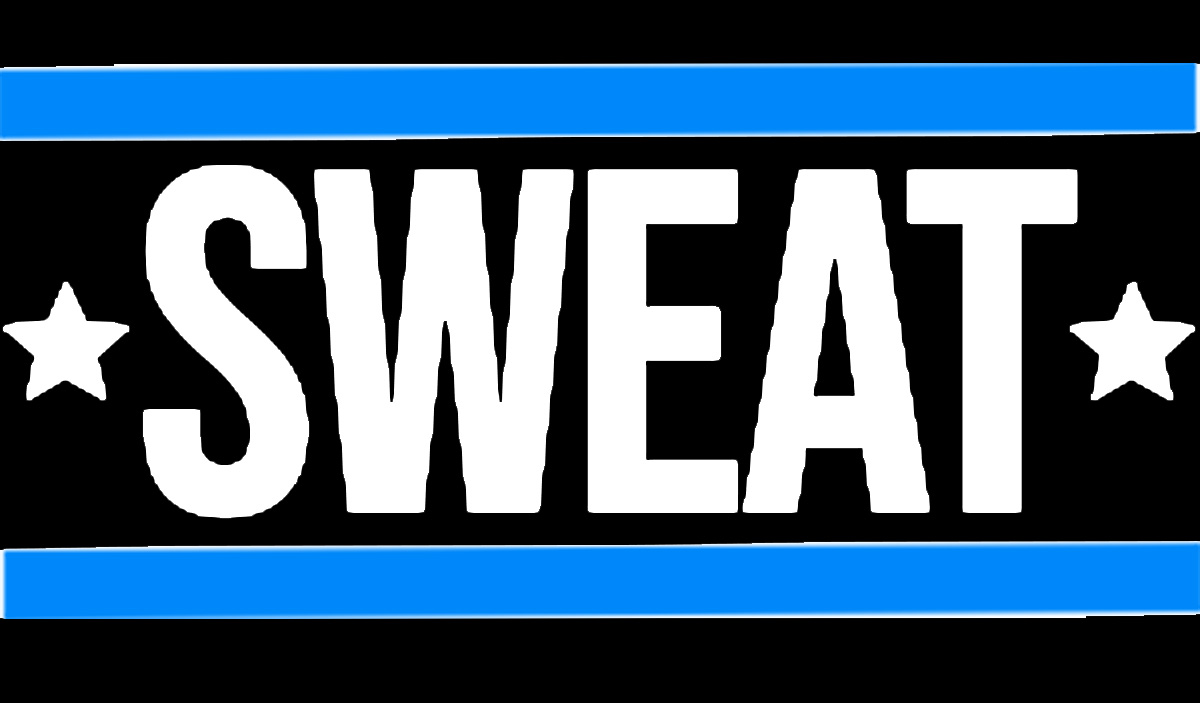
Sweat DC is officially expanding to Shaw, opening a new location at 1818 7th St., N.W., on Saturday, March 28 — and they’re kicking things off with a high-energy, community-first launch event.
To celebrate, Sweat DC is hosting Sweat Fest, a free community workout and social on Saturday, March 14, at 10 a.m. at the historic Howard Theatre. The event features a group fitness class, live DJ, local food and wellness partners, and a mission-driven partnership with the Open Goal Project, which works to expand access to youth soccer for players from marginalized communities.
For more details, visit Sweat DC’s website and reserve a spot on Eventbrite.

Friday, Feb. 20
Center Aging Monthly Luncheon with Yoga will be at noon at the D.C. LGBTQ+ Community Center. Email Mac at [email protected] if you require ASL interpreter assistance, have any dietary restrictions, or questions about this event.
Trans and Genderqueer Game Night will be at 7 p.m. at the D.C. Center. This will be a relaxing, laid-back evening of games and fun. All are welcome! We’ll have card and board games on hand. Feel free to bring your own games to share. For more details, visit the Center’s website.
Go Gay DC will host “First Friday LGBTQ+ Community Social” at 7 p.m. at Hotel Zena. This is a chance to relax, make new friends, and enjoy happy hour specials at this classic retro venue. Attendance is free and more details are available on Eventbrite.
Saturday, Feb. 21
Go Gay DC will host “LGBTQ+ Community Brunch” at 11 a.m. at Freddie’s Beach Bar & Restaurant. This fun weekly event brings the DMV area LGBTQ community, including allies, together for delicious food and conversation. Attendance is free and more details are available on Eventbrite.
LGBTQ People of Color will be at 7 p.m. on Zoom. This peer support group is an outlet for LGBTQ People of Color to come together and talk about anything affecting them in a space that strives to be safe and judgement free. There are all sorts of activities like watching movies, poetry events, storytelling, and just hanging out with others. For more information and events, visit thedccenter.org/poc or facebook.com/centerpoc.
Sunday, Feb. 22
Queer Talk DC will host “The Black Gay Flea Market” at 1 p.m. at Doubles in Petworth. There will be more than 15 Black queer vendors from all over the DMV in one spot. The event’s organizers have reserved the large back patio for all vendors, and the speak easy for bar service, which will be serving curated cocktails made just for the event (cash bar.) DJ Fay and DJ Jam 2x will be spinning the entire event. For more details, visit Eventbrite.
Monday, Feb. 23
“Center Aging: Monday Coffee Klatch” will be at 10 a.m. on Zoom. This is a social hour for older LGBTQ adults. Guests are encouraged to bring a beverage of choice. For more information, contact Adam at [email protected].
Tuesday, Feb. 24
Coming Out Discussion Group will be at 7 p.m. on Zoom. This is a safe space to share experiences about coming out and discuss topics as it relates to doing so — by sharing struggles and victories the group allows those newly coming out and who have been out for a while to learn from others. For more details, visit the group’s Facebook.
Genderqueer DC will be at 7 p.m. on Zoom. This is a support group for people who identify outside of the gender binary, whether you’re bigender, agender, genderfluid, or just know that you’re not 100 percent cis. For more details, visit genderqueerdc.org or Facebook.
Wednesday, Feb. 25
Job Club will be at 6 p.m. on Zoom upon request. This is a weekly job support program to help job entrants and seekers, including the long-term unemployed, improve self-confidence, motivation, resilience and productivity for effective job searches and networking — allowing participants to move away from being merely “applicants” toward being “candidates.” For more information, email [email protected] or visit thedccenter.org/careers.
Asexual and Aromantic Group will meet at 7 p.m. on Zoom. This is a space where people who are questioning this aspect of their identity or those who identify as asexual and/or aromantic can come together, share stories and experiences, and discuss various topics. For more details, email [email protected].
Thursday, Feb. 26
The DC Center’s Fresh Produce Program will be held all day at the DC Center. To be more fair with who is receiving boxes, the program is moving to a lottery system. People will be informed on Wednesday at 5 p.m. if they are picked to receive a produce box. No proof of residency or income is required. For more information, email [email protected] or call 202-682-2245.
Virtual Yoga Class will be at 7 p.m. on Zoom. This free weekly class is a combination of yoga, breathwork and meditation that allows LGBTQ community members to continue their healing journey with somatic and mindfulness practices. For more details, visit the DC Center’s website.

